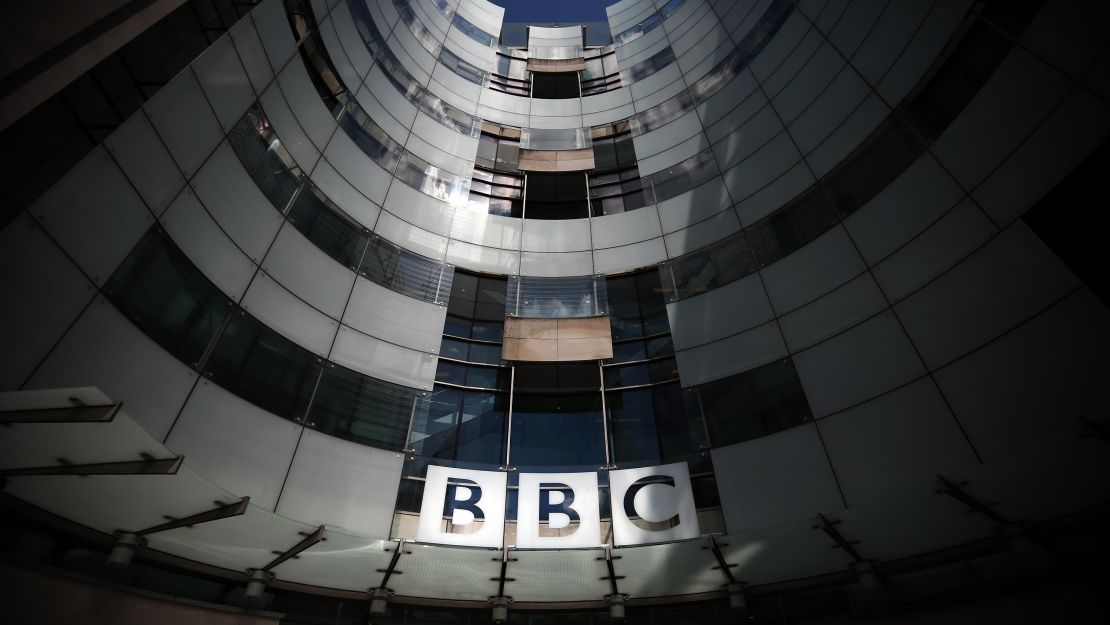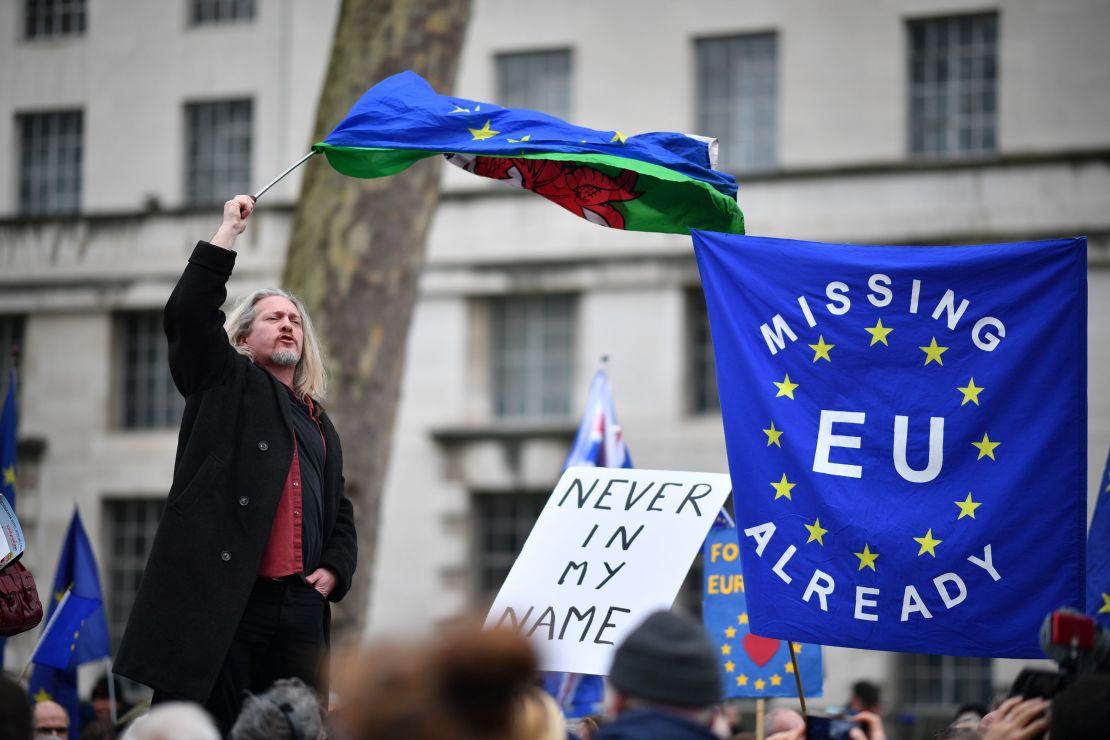The UK may have only left the European Union last Friday, but its next opportunity to stagger blindly off a cliff is just 20 weeks away.
The current Brexit transition period is due to expire on December 31. Between now and then, both the UK and Brussels hope to reach an agreement on their future relationship. Failure to do so would mean no formal agreement and the immediate cessation of all current arrangements, causing untold chaos and disruption.
And while the transition period can be extended, the UK needs to decide whether it wishes to do so before July 1. That, according to international law, really is the point of no return and potentially the new economic cliff edge. Boris Johnson has said that he has absolutely no intention of extending.
Given that it took nearly four years to reach an agreement with Brussels that avoided the first cliff edge, you’d think this might be cause for alarm in London.

However, since Brexit Day, Westminster has been eerily quiet on the single most important issue facing the United Kingdom in 2020.
Johnson’s Conservatives are swaggering around with the confidence you might expect of a government that recently won a landslide victory in the most important general election of a generation. Gone are the days of deadlock; Johnson’s government is now free to pursue whatever agenda it likes in this post-EU reality.
Locking horns
Right now, what it seems to like doing most is picking fights.
In the past week alone, Downing Street tried to play divide and rule with the British press, excluding some reporters from news outlets deemed to be critical of its policies from government briefings – including those given by impartial civil servants.
It also announced plans that pave the way to removing the BBC’s public funding model. Johnson’s government has been locking horns with the BBC virtually since he came to power over the summer, and many in his inner team believe that the national broadcaster has an anti-Brexit, anti-Johnson bias.

And he’s setting himself up to have a nasty screaming match with human rights lawyers later this month. Johnson’s government is putting forward controversial legislation that would change how and when people convicted of terror offenses are released from prison. It’s possible that these plans are illegal under human rights law.
The question is, why is a PM with such a huge task ahead of him so willfully poking so many hornets’ nests? “This government obviously likes conflict. I don’t think they are particularly bothered by people seeing them as being at war with the BBC or in conflict with judges over keeping suspected terrorists in prison via retrospective legislation. And if it serves as a distraction from the government’s Brexit strategy, so much the better,” says Anand Menon, director of the UK in a changing EU think tank.
Whether it’s a deliberate distraction strategy or not, Boris Johnson’s government is becoming defined by its propensity for combat. Civil servants who had served previous administrations complain that Johnson’s political advisers are “arrogant,” “overly confident” and deliberately creating an “us versus them culture.”
However, many of these civil servants are not seeing much beyond the bluster. Despite having the mandate to pursue whatever agenda it likes, Johnson’s government seems fixated on telling people how much they want to change the country without doing all that much about it.
Which somewhat lends weight to the theory that Johnson’s government is eager that the national conversation be on any subject other than Brexit. And that could be down to the fact that the UK’s current Brexit strategy appears to be sitting tight, not saying very much and letting the clock run down. And many are worried that this is because the government’s real strategy is to leave at the end of this year with no formal future relationship in place.
“The government is existing day-to-day at the moment … I think with all things added up, it’s becoming very likely we are going to leave on December 31 without a deal,” says Chris Bryant, an opposition Labour Party lawmaker.
Earlier in the week Johnson talked about the UK’s future relationship with Europe being like Australia’s. Phil Hogan, the EU’s trade commissioner, quickly pointed out that Australia has no formal trading relationship with the EU, and that he believed it was code for “no deal.” When asked for its response to Hogan’s comments, the government told CNN that Australia has several bilateral agreements with the EU, and that it already has a deal with the EU – the deal that it left last Friday.

Gloom in Westminster
There is also little scrutiny of the government’s Brexit policy at the moment. When general elections are called, Parliament is dissolved. This means that parliamentary committees that exist to scrutinize the government are gone and not reelected until Parliament is up and running again. That process can take months and it largely at the mercy of the government. “The problem with an election is it takes Parliament out of action for about four months in terms of total scrutiny,” explains Bryant.
The opposition Labour Party is not doing a great job of holding Johnson to account. This isn’t a huge surprise, seeing as it’s currently electing a new leader. However, the result of this contest will not come until April 4, by which time official talks with the EU will have started and that July 1 deadline will be just 89 days away.
The Labour Party was instrumental in forcing Johnson to extend the previous Brexit deadline. It also frustrated Johnson by not allowing him to hold an election until no deal had been taken officially off the table. However, on Wednesday at the weekly session of Prime Minister’s Questions, Labour’s leader, Jeremy Corbyn, didn’t raise Johnson’s recent shift to an Australia deal or the fact that the EU’s top trade official claims it is cover for no deal.
Lawmakers in Johnson’s own Conservative party who are not in the inner circle are equally despondent at their inability to affect the government’s position on Brexit. They say with a resigned shrug that Johnson doesn’t need them any more.
Whoever you talk to, the biggest concern is that Johnson is going to spend the next year playing to his Euroskeptic base. They fear he will talk up the hardest deal possible. It might be economic folly, but so what?
Despite the gloominess in some corners of Westminster, the mood in Brussels is calm. “We’ve been doing this for three years now. We are not surprised by political developments in Westminster. All that matters is what happens when we get in the room,” one EU official told CNN.
EU diplomats share this view. They accept that Johnson’s government wants a harder Brexit than they are happy about, but ultimately are aware that it’s the UK who faces the more daunting cliff edge at the end of this year. And many in Brussels are quick to note that cliff edges have previously worked to bring the Brits closer to Brussels when the crunch comes.
The only real unknown in all of this is what Johnson ultimately wants. He has frequently stated he wants a free trade deal that causes minimum disruption while being able to diverge from the EU on rules. He is happy to tell the EU that the UK will maintain high standards on things like foods, but he is less keen to commit to anything in writing. This could become a sticking point as the clock runs down.
Despite the relatively short period of time for all this to get done, it’s worth noting that the UK starts from a position of full alignment with the EU and that Brussels isn’t hellbent on punishing the UK for leaving. There is goodwill on both sides – at the moment – and there is very clearly a deal waiting to be done.
The problem, as with all things Brexit, is politics. Johnson is thought by many to have buckled in Brussels to get Brexit done. He just about sold it to his own party, with some enormous caveats. If he tries to do it again, he might not find his Conservative party so supportive. However, if he does play hard and do a deal that harms the British economy, he could equally find that the voters who handed him a majority are turned off.
Boris Johnson upended British politics in December. He won the most important election in recent history, delivered Brexit and is currently walking on air. However, he has to make some enormous choices in the coming weeks and, far from getting it done, he is going to discover that Brexit will continue to dominate his career and define his political legacy. He’d do well to remember that when deciding what’s best for the country. After all, despite the noise, it’s only what he thinks and says that really matters now.






















